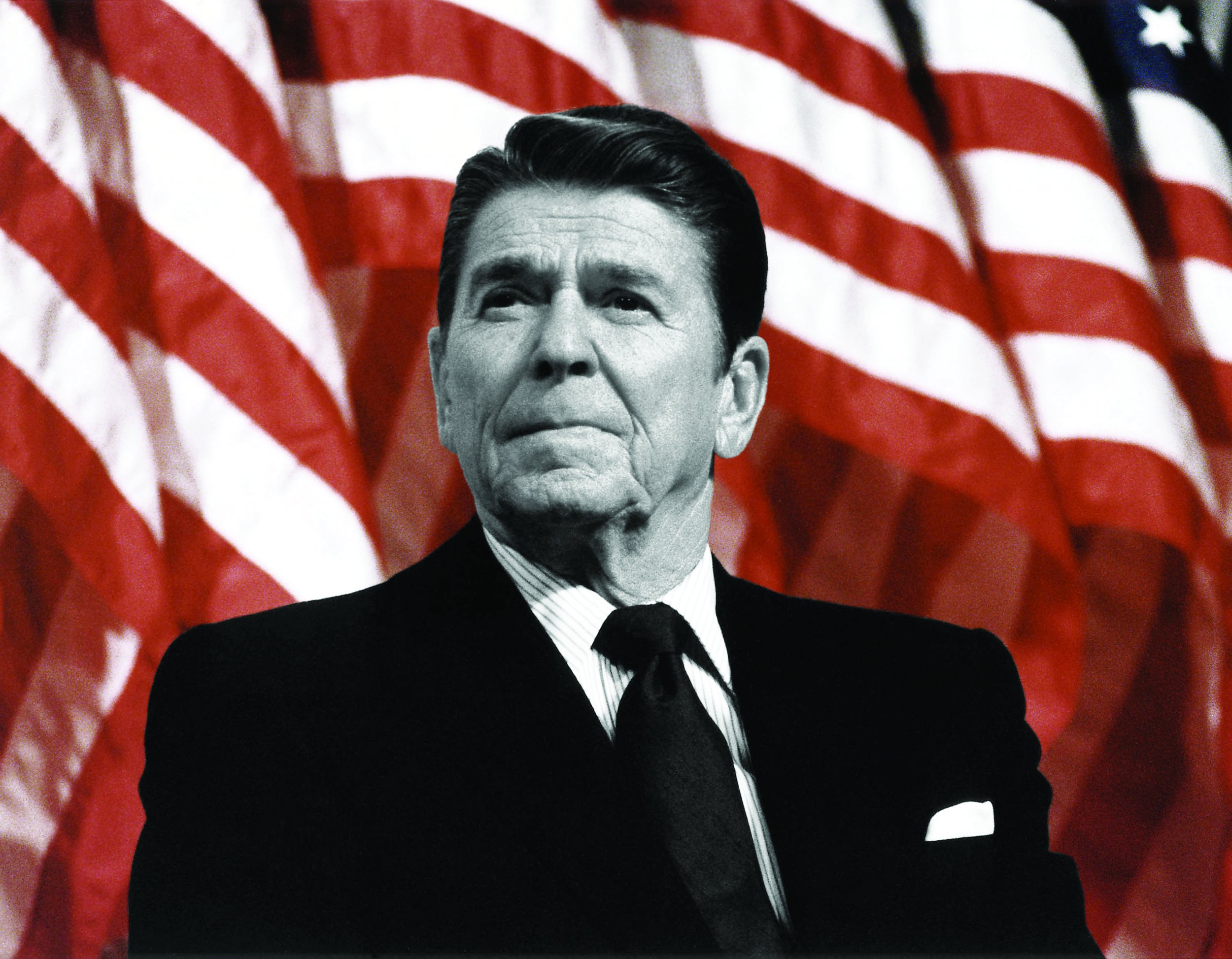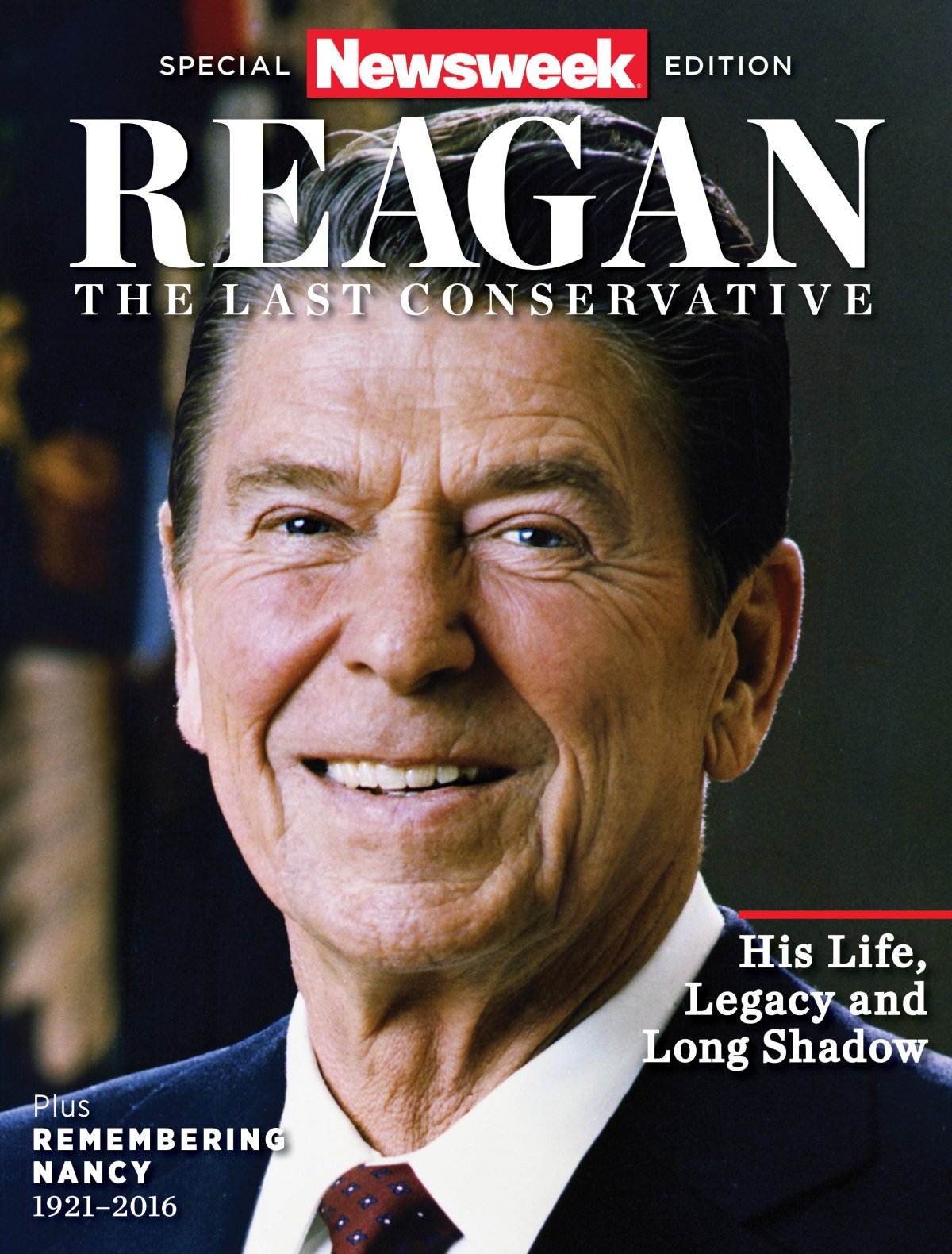
Republican presidential candidate Ted Cruz has gone on record saying the country is ripe for another Reagan revolution. But few of the Republicans contesting for the presidential nomination possess the restraint Reagan showed in politics. Senator Cruz famously alienated members of his own party when he accused Senate Majority Leader Mitch McConnell, on the Senate floor, of lying.
This article, excerpted from the July, 8, 2010, issue of Newsweek, is featured in a new special edition, Reagan: The Last Conservative.
Grown men don't tend to worship other grown men—unless, of course, they happen to be professional Republicans. For conservatives, Reagan is more than a president. He is a god of sorts: wise, just, omniscient, infallible. Being Republican has long meant being like Reagan—or at least saying you're like Reagan. The writer Dinesh D'Souza neatly captured the conservative CW when he suggested that the right "simply need[s] to ask in every situation that arises: 'What would Reagan have done?'" Period. Problem solved. Republicans who think Reagan is truth (and truth Reagan) may be overdoing it. But he's still the GOP's best model of how to win and how to lead.
The problem is not that conservatives are searching for lessons in his record. It's that they're learning the wrong ones. In the years since Reagan left the White House, a vocal contingent of Republicans has sought to enforce current party orthodoxy—cut taxes at all costs; limit government spending (except defense); let the Bible be your guide—by insisting that Reagan was its source. As a result, the Reagan that Republicans now revere—a mythical founder figure who always cut taxes, always rattled his saber and always consulted Jesus—barely resembles the more pragmatic Reagan who actually ran the country.
To recapture the Reagan magic, Republicans must stop pining for some imaginary past and start asking how the real Reagan would "get stuff done" today. Some answers seem clear: He would've opposed Obamacare, refused to impose new regulations on the oil industry and resisted the idea that government can spend its way out of a recession. But other questions are more vexing. It's doubtful, for example, that a contemporary Reagan figure would seek to solve every problem by cutting taxes. In fact, much the opposite. In 1982, Reagan agreed to restore a third of the previous year's massive cut. It was the largest tax increase in U.S. history. In 1983, he raised the gasoline tax by 5 cents a gallon and instituted a payroll-tax hike that helped fund Medicare and Social Security.
When it came to taxation, there were two Reagans: the pre-1982 version, who did more than any other president to lighten America's tax burden, and his post-1982 doppelgänger, who was willing (if not always happy) to compensate for gaps in the government's revenue stream by raising rates. Today, a truly Reaganesque leader would recognize (like Reagan) that the heavy lifting was finished long ago, and he would dial back the anti-tax dogma as a result.

In doing so, a 21st-century Reagan would free himself up to finish a bit of business that his predecessor never got around to: reducing the federal deficit. Back then, Reagan avoided the tough decisions required to reduce the deficit; he was more concerned with confronting the Soviets and cutting taxes. But now that the Cold War is over and the top marginal tax rate is half of what it was in 1980, a real Reaganite no longer has any excuse to duck the country's fiscal dilemma. Reagan worshippers will have a hard time stomaching the idea that lower defense spending could ever qualify as Reaganesque; after all, the Gipper increased the military's funding by more than 40 percent during his time in office, disbursing $2.8 trillion overall.
But there are two reasons to think that a contemporary Reagan might accept leaner defense budgets. The first is that Reagan boosted defense spending for a specific historical reason: to force the poorer Soviet Union, which at one point was spending an unthinkable 40 percent of its annual budget on the military, to choose between wrecking its economy and ceding the arms race. Today, however, the threat Reagan was confronting (Soviet communism) no longer exists, and what's replaced it (the asymmetrical war against Islamist extremism) requires a response that relies on soft power and surgical strikes rather than overwhelming military force.
The second reason is that despite his hawkish rhetoric, Reagan almost always resisted using brute force against America's enemies. With the Soviet Union on the ropes, the president spent his second term angering conservatives and confusing his own advisers by pursuing his "dream" of a nuclear-free world with his "friend" Mikhail Gorbachev in a series of dovish summits that enabled the Soviet leader to make the internal reforms required to end the Cold War.

For Republicans, Reagan is still relevant. But worshipping his myth—and pretending that his campaign promises and rhetoric represent his entire legacy—won't help the GOP chart a path back to power. To do that, a new generation of leaders should study how the Gipper actually governed, then modernize his approach for today's world. The result would be optimistic, forward-looking politics centered on a few key priorities: reducing the deficit, matching military spending to current challenges, solving the immigration puzzle. It wouldn't be an exact replica of Reagan's 1980 platform. But it would be Reaganesque.
This article was excerpted from Newsweek's Special Edition—Reagan: The Last Conservative, by issue editor James Ellis. For more about the life, legacy and long shadow of President Ronald Reagan, pick up a copy today.

Uncommon Knowledge
Newsweek is committed to challenging conventional wisdom and finding connections in the search for common ground.
Newsweek is committed to challenging conventional wisdom and finding connections in the search for common ground.





